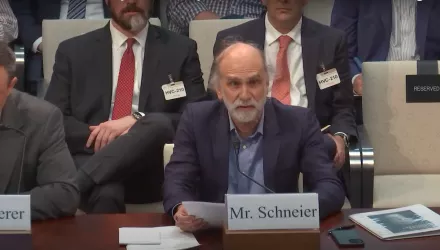Summary
Alarmed by Russia’s brazen interference in the 2016 US Election, Sweden began preparing for its September 2018 election in earnest. Over the past year and a half, Sweden has created a comprehensive strategy based on a clear understanding of the threat; it has learned lessons from other targeted elections; and it has developed a whole-of-society defense—mobilizing not just the government, but also the Swedish media and Swedish citizens.
Going forward, countries around the world should study and implement these eight key components of Sweden’s whole-of-society election defense:
• Clear condemnation of election interference. The Swedish Prime Minister explicitly stated in January 2018 that any foreign interference in the election would not be tolerated. This condemnation set the national tone towards election interference.
• Prioritizing election infrastructure. Sweden has designated its election systems as a component of critical infrastructure by appointing the Swedish government’s crisis preparation and response agency as the head authority for election coordination. The agency’s efforts have included comprehensive threat analysis and penetration testing of election systems, as well as the training of over 10,000 civil servants and election administrators to recognize ongoing influence operations.
• High-level interagency coordination. Sweden created a national forum between four key security agencies dedicated to coordinating the 2018 election. While the reporting lines between these organizations have not been altered as a result of the forum, the forum serves as a national platform for election planning, preparation, and protection.
• Efforts to improve public media literacy. Sweden’s numerous public and private sector efforts to improve media literacy have bolstered the public’s psychological defense to information operations. The nationwide high school “fake news” curriculum is an unprecedented commitment to confronting influence operations long-term.
• Strengthening military force posture. By re-introducing military conscription, increasing the military budget, performing large-scale military exercises, and signing new international defense agreements, Sweden has raised the perceived cost of election interference for potential adversaries.
• Improving cyber detection and response capabilities. Sweden’s National Defense Radio Establishment has evolved into a high-powered cyber detection group. The agency has also begun cooperating with the Swedish Armed Forces on critical cyber threats.
• Coordination with the traditional media. The Swedish government’s continuous discussion about cybersecurity and crisis-preparation with traditional media outlets has the potential to be a crucial stabilizing force in the event of a national crisis— election related or otherwise.
• High-visibility fact-checking collaboration. Five of Sweden’s largest media outlets have created a fact-checking collaborative to bring increased attention to each organization’s independent fact-checking efforts.
Cederberg, Gabriel. “Catching Swedish Phish: How Sweden is Protecting its 2018 Elections.” Belfer Center for Science and International Affairs, Harvard Kennedy School, September 7, 2018


